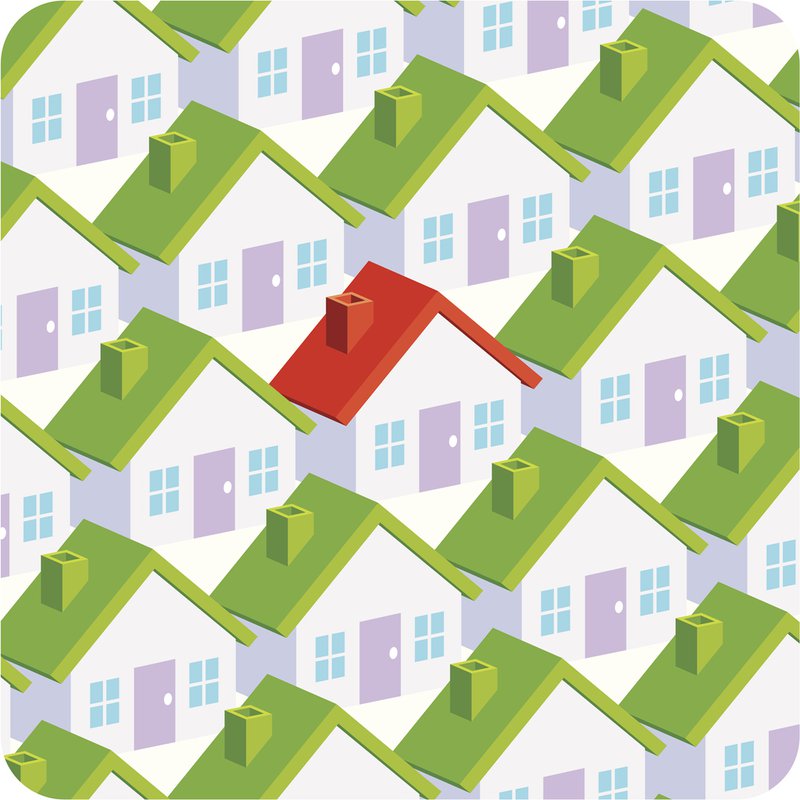
Robert McLister
March 12, 2020
Amid crumbling financial markets, hundreds of thousands of Canadians must pick a mortgage term this spring.
The most common question they’re asking – besides “what’s your best rate?” – is “should I go fixed or variable?”
Well, my magic eight ball isn’t perfect, but it does tell me this: The odds are with variable rates.
MORE FLOATING, LESS FIXING
The oil price collapse and these violent coronavirus-triggered market sell-offs reflect a once-in-a-decade crisis. They’ve hammered interest rates and could steamroll our economy.
Bond market prices now imply that Canada’s key interest rate will drop a full percentage point in the coming months to 0.25 per cent. TD Securities says it’s “entirely plausible” the Bank of Canada cuts to zero per cent. BMO Nesbitt Burns says we’ll get close to zero by summer.
In the modern era of economic policy, there’s never been a time when five-year fixed rates were significantly higher five years out, after an emergency rate cut. For that matter, we’ve never cut rates to near zero, which is far less stimulative than rate cuts in the “old days.” Add to that the BoC’s intolerance for high inflation and all the disinflationary trends now acting on prices, and soaring rates in five years seem even less likely.

For borrowers, that makes variables more compelling. That’s arguably even truer with banks showing a willingness to match BoC rate cuts. A week ago, many weren’t sure they would.
On that note, Governor Stephen Poloz said the BoC made “a decisive and clear move [on rates] so that people get immediate impact through mortgage renewals and cash flow for those with flexible mortgages.”
This was vital to “cushion a blow” to consumer confidence, a major home-buying factor, he said. And banks know this.
Had banks not passed through the full 50-basis-point cut to their prime rates last Wednesday, it would have undermined the BoC’s efforts – and the country’s best interests. (One hundred basis points equal one percentage point.) This bigger picture will hopefully encourage banks to keep matching the BoC on future rate cuts. That would be another big positive for variable rates.
WHERE WE MAY LAND
When this crisis shakes out, five-year fixed rates could land in the high-1-per-cent range, a record low. Variable rates for new borrowers could end up slightly lower. That’s assuming:
- five-year bond yields drop near zero, a real possibility given the BoC’s expected path;
- banks do not start building risk premiums into their mortgage rates;
- the prime rate falls to 2.75 per cent (if banks pocket 30 basis points of the BoC’s 100 bps in rate cuts).
A sub-2-per-cent five-year fixed is spectacular, but it doesn’t let you ride down rates if the BoC cuts. Fixed mortgages also come with uglier penalties if rates drop and borrowers want to break their contract early. That’s not to mention, variables let you lock into a fixed rate any time without penalty.
SOME PARTING TIPS
- For well-qualified borrowers, five-year fixed rates are now as low as 2.59 per cent (a typical discounted rate), 2.39 per cent (the lowest uninsured rate), 2.03 per cent (the lowest insured rate). The best variable mortgage rates are 2.39 per cent or less. These vary by your location, property, and creditworthiness.
- Most short-term fixed rates are suddenly high by comparison, but HSBC’s 1.99-per-cent three-year fixed is still a winner if you need an insured mortgage. Tangerine’s 2.19-per-cent three-year leads the pack for uninsured mortgages.
- If you go variable with thoughts of locking in later, remember it’s tricky to time a rate lock. Be sure to pick a lender that publicly posts low fixed rates. Otherwise, you’re at your lender’s mercy when you ask to lock-in.
- If you want a payment that drops with the prime rate, choose an “adjustable-rate mortgage.” Use those payment savings to pay off higher-interest debt or invest.
- If you’ve got a five-year fixed and want to refinance soon, do it before banks cut their short-term posted rates. If you wait, you may face a greater penalty because of how banks calculate interest rate differential penalties.
- If you go fixed, try to pick a lender that automatically “floats down” your rate before closing. More and more lenders have promo rates that cannot be lowered between approval and closing. That could cost you in a falling-rate environment.
This Globe and Mail article was legally licensed by AdvisorStream.
© Copyright 2024 The Globe and Mail Inc. All rights reserved.


